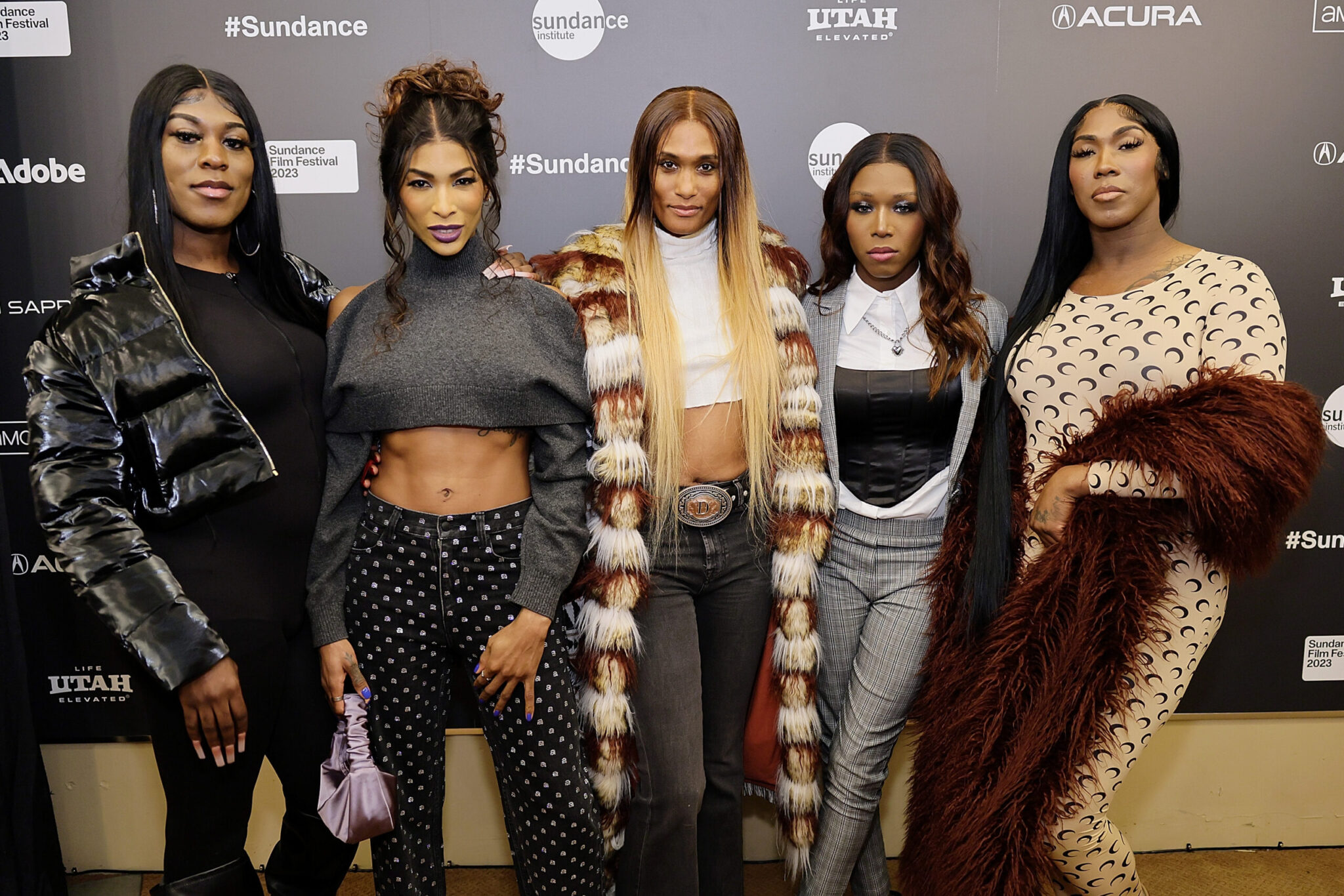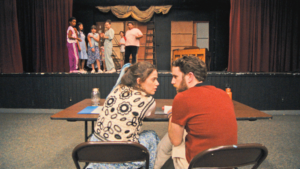PARK CITY, UTAH – JANUARY 21: (L–R) Liyah Mitchell, Dominique Silver, D. Smith, Daniella Carter, and Koko Da Doll attend the 2023 Sundance FIlm Festival “KOKOMO CITY” premiere at the Egyptian Theatre on January 21, 2023 in Park City, Utah. (Photo by Neilson Barnard/Getty Images)
By Lucy Spicer
There’s nothing dated about the monochrome look of KOKOMO CITY.
“Black and white represents truth,” says director D. Smith during the film’s post-premiere discussion at the Egyptian Theatre on Saturday, January 21. “But black and white also elevates any story. Their story is dignified and elevated and beautiful and as timeless as possible, even though there’s dialogue that we as Black people use. It’s still our dialogue and still classic and still beautiful, and it’s us, and I wanted to honor that with black and white.”
Smith’s documentary puts the spotlight on four Black transgender sex workers in New York and Georgia, and their candid stories prove that no part of their identities can be confined to a box.
The film features a supporting cast of sorts comprising Black men who relate their feelings on the pressures they face within their community to embody traditional masculinity, but KOKOMO CITY’s real focus is on Liyah, Daniella, Dominique, and Koko Da Doll.
These four women offer honest, raw commentary about sex work, womanhood, trans and Black identities, and more. But their lack of filter isn’t meant to shock a sheltered audience. Far from it. Instead, we’re invited into their world from the very first anecdote. Why should they police their speech or sanitize their stories? After all, they’re in their homes and neighborhoods, and the camera is just a guest.
Having the right person behind the camera certainly helps to create a good interview atmosphere, and Smith proves she’s the filmmaker for the job. KOKOMO CITY is the directorial debut for Smith, a two-time Grammy-nominated songwriter-producer who chose to transition at a high point in her career and consequently lost out on future employment opportunities. After multiple directors rejected her idea for a documentary, she decided to film it herself.
“It took a lot of trust, because we were very vulnerable in our situations,” says Dominique in the post-premiere discussion when the women were asked about putting their trust in Smith as a documentarian. “But she assured us that it was gonna be portrayed in the best light, and we were gonna look good,” she explains to a chuckling audience.
“I kept being attached to what other people told me I should look like and be,” says Daniella of her past experience with public speaking. “D. gave me the opportunity to show up and be me.”
Smith’s years in the music industry are creatively reflected in the film, from mood music to humorous sound effects. “I wanted to add color,” she explains. “I just wanted us to be human, and I wanted to add color and add sounds that people were afraid to do because it’s like this sacred, scary place to deal with trans women. I kind of just went for it.”
Smith’s creative choices all come together to make a film that deftly balances humor, pain, uncertainty, and conviction, all channeled through its memorable, energetic, engaging, unapologetic subjects.







